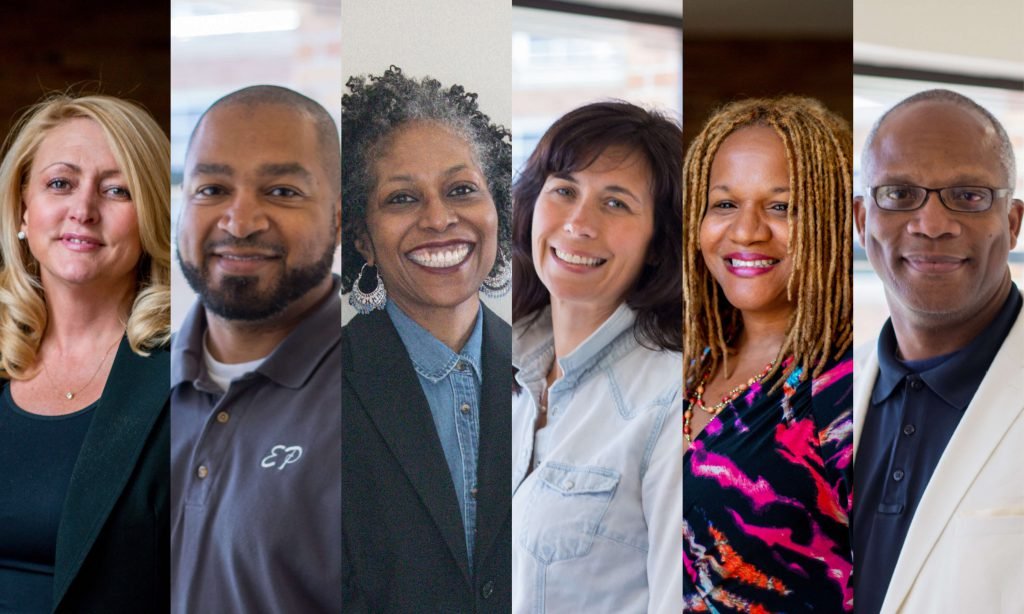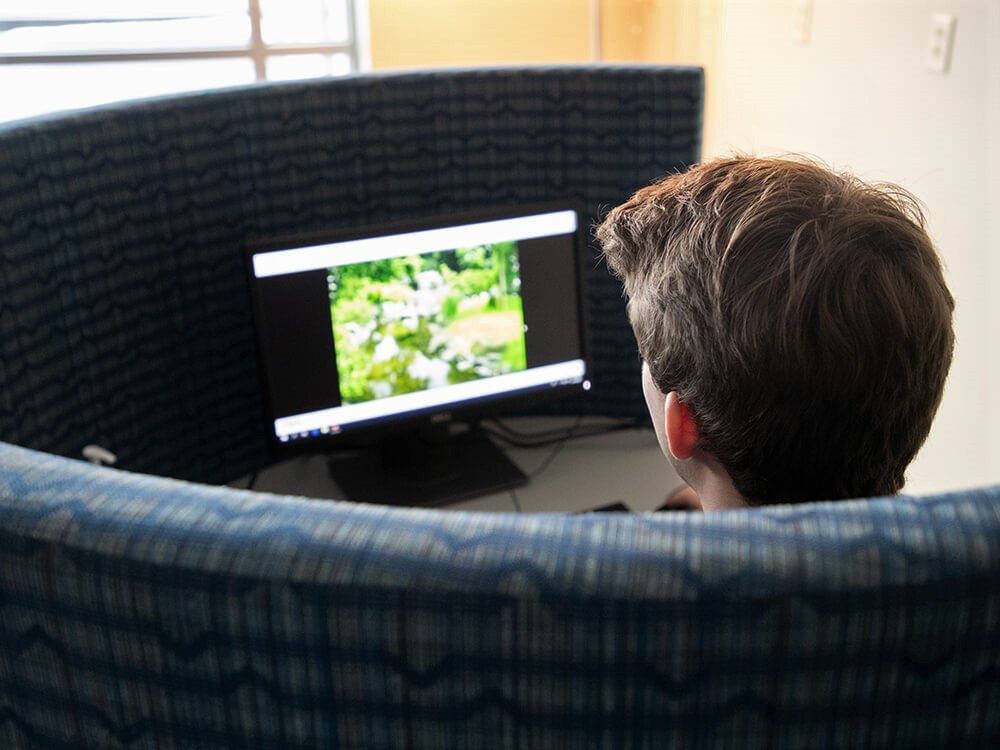
CUW students, if you haven’t checked out Concordia University Wisconsin’s wellness services lately, it’s time to take another look.
Thanks to Concordia’s JED Campus team, the university recently added three new resources to its mental and emotional health repertoire in order to reach a broader spectrum of students and connect you with the most appropriate services for your needs. Concordia is one of only six universities in Wisconsin to join the nationwide JED Campus initiative, designed to help schools build upon existing mental health, substance abuse, and suicide prevention efforts for students. Click here to learn more about Concordia’s involvement with JED.
The services listed below demonstrate Concordia’s desire to meet the highest possible standard of care for students in alignment with the university’s mission. Read on to find a resource that might be a fit for you.
Triage (New this fall!)
In order to make the most efficient use of Concordia’s resources, the university has hired two part-time employees to serve as the first stop for all student mental health queries and requests. These Intake/Triage Coordinators are tasked with helping students navigate Concordia’s slate of wellness offerings and assessing/prioritizing student needs.
The first Intake/Triage Coordinator Concordia hired is alumnus Rebecca Hasbani, who graduated from CUW in 2019 with her bachelor’s degree in psychology. Alumna Kimber Powers also joined the triage team recently. Powers earned double bachelor’s degrees in biomedical science and psychology from CUW.
Life coaches (New this fall!)
Last week, Concordia announced the launch of the first no-cost life coach program offered to college students in the state. Six Concordia employees acquired coaching certification and are now accessible to any student who wants to make progress in their lives through strategies such as goal setting, accountability, and confronting cognitive distortions.
Learn more about Concordia’s life coaches here.
U-Lifeline (New since spring!)
Thanks to Concordia’s JED membership, students have access to U-Lifeline free of charge. U-Lifeline is a mental health resource designed specifically for college students. The site includes a self-evaluator to screen your own symptoms, as well as emergency resources available on and off campus, articles on wellness habits, and more.
Students can access CUW’s personalized U-Lifeline website here.
Evelyn’s Place
Named after beloved, now-retired Concordia employee named Evelyn Hutchins, Evelyn’s Place is designed to provide high-quality stress management services for undergraduate students. The university is the only school in Wisconsin and one of only a handful of colleges nationwide to have a lab of its kind.
Evelyn’s Place is a designated room on campus (next door to the Luptak Terrace Room) that grants students access to tools including biometric feedback (or biofeedback) and online educational modules to help them learn about mindfulness, meditation, and breathing techniques in order to reduce stress, anxiety, or feelings of panic.
Read more about Evelyn’s Place here.
Evelyn’s Corner (New this fall!)
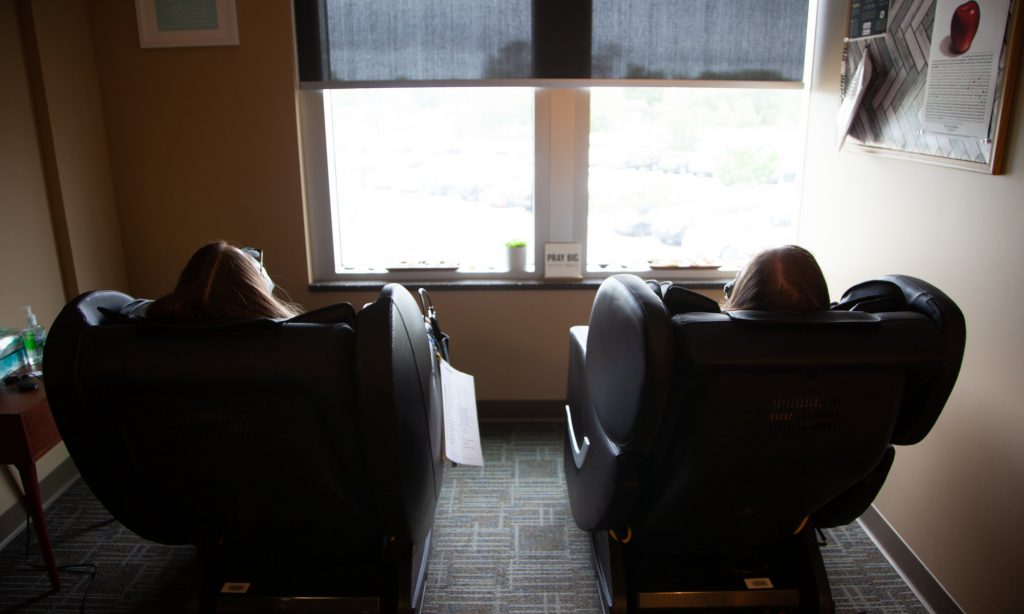
Evelyn’s Corner offers many of the benefits of Evelyn’s Place, but in locations that are accessible to even more students. This fall, Student Life added Evelyn’s Corners to residence halls (handheld massages, relaxation stations, and HeartMath accessibility). School of Pharmacy also padded its stress relief offerings for students, faculty, and staff with massage chairs, HeartMath accessibility, and more in PH129.
Read more about Evelyn’s Corner here.
CALM Initiative
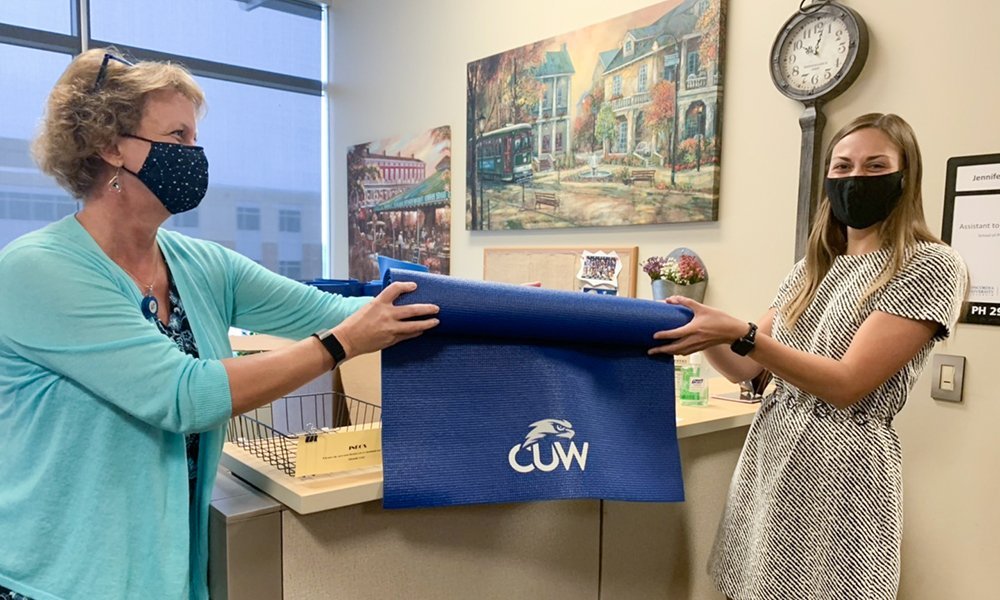
The CALM group is an interdisciplinary team of faculty members who encourage students, faculty, staff, and alumni to practice self-care weekly. Each Tuesday, Concordians are encouraged to devote just 20 minutes of their day (from 12:20 to 12:40) to their personal health as the CALM team leads participants via Zoom through exercises such as breathing, setting intentions, and mindful movement.
Counseling Center
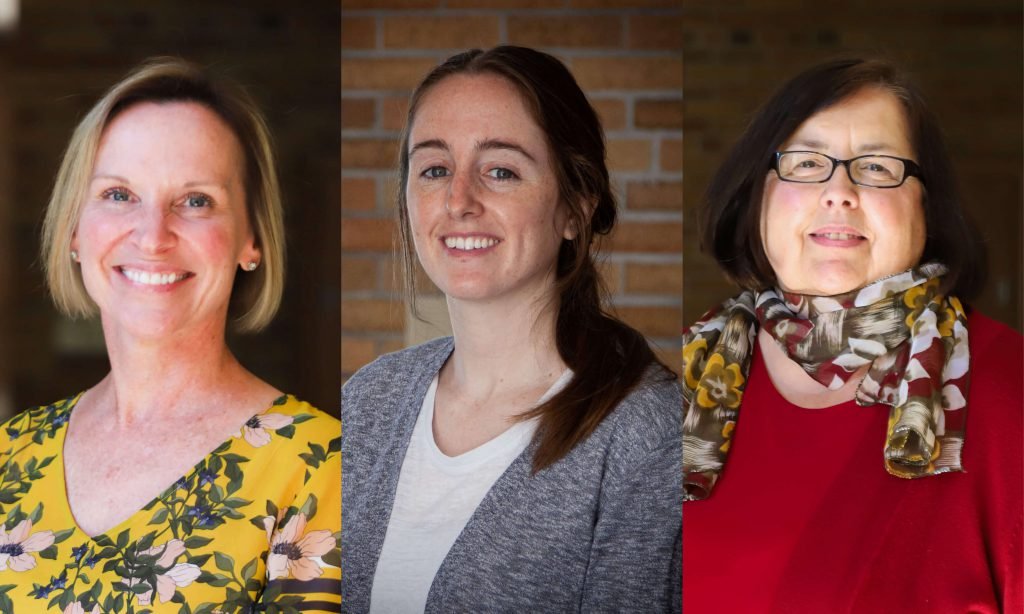
Of course, Concordia maintains the baseline care that colleges across the nation fulfill by providing students with access to clinically certified counselors free of charge, but CUW does so within a Christian framework. The Counseling Center welcomed three new professionals to the team this year who strive to approach counseling from a lens of faith.
You don’t need to have a clinical diagnosed disorder to utilize the Counseling Center. Students seek support for a variety of reasons, such as anxiety, depression, self-esteem issues, addictions, and more.
The Counseling Center is open Monday through Friday from 7 a.m. to 5 p.m. (evening hours by appointment). If you or a friend find yourself in an emergency, call Campus Safety at 262-243-4344.
If you are ever struggling, you can reach out to CUW’s Intake/Triage team to schedule an in-person meeting (or virtual, if you choose) with one of Concordia’s clinical counselors. Click here to learn more about Concordia’s Counseling Center.
Comfort Dogs

In 2014, Concordia was the first known university in the nation to pilot a program that utilizes a certified comfort dog in a full-time capacity for students’ benefit and beyond. Concordia now has two comfort dogs, Zoey and Sage, and will seek to add a third in the near future. Through the Comfort Dog Program, which is overseen by Counseling Center Director Dave Enters, these animals offer stress reduction, emotional relief, and improved well-being to all those who encounter them on campus. The comfort dogs have regular “roaming” hours and they’re also used as aids in regular counseling sessions.
Concordia’s Comfort Dog Program was honored as a “Model of Excellence” among higher education institutions nationwide. Learn more here.
Good Samaritan Team
Concordia has systems in place to identify and support students academically, but as we all know, scholarship and academic excellence is only one piece of the puzzle. So Concordia put together the Good Samaritan Team, an interdisciplinary behavioral intervention team that identifies and connects students deemed to be at risk to themselves or others with resources or people who can help.
If an employee or peer has a concern about a student’s wellbeing but they’re not sure where to start, they’re encouraged to reach out to Dean of Student Dr. Steve Gerner, who is part of the Good Samaritan Team.
— This story is written by Kali Thiel. Kali was Director of University Communications until April, 2025.
If this story has inspired you, why not explore how you can help further Concordia's mission through giving.
